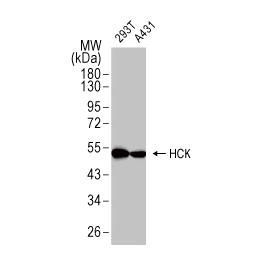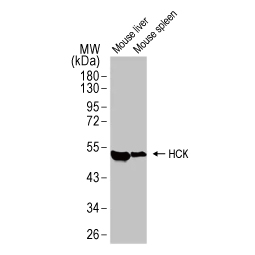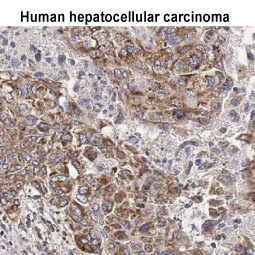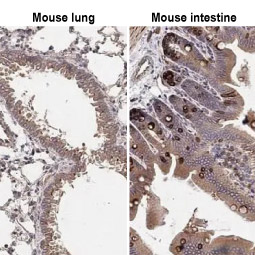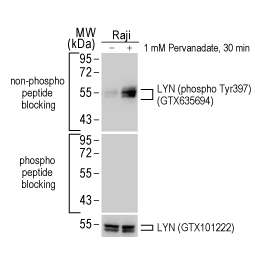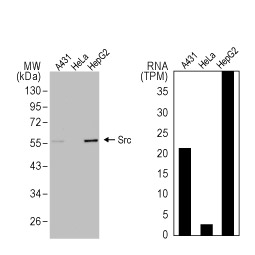An immunologically “cold” tumor microenvironment (TME), even one associated with an otherwise immunogenic tumor, can render immunotherapy ineffective. These cold TMEs are often defined by the presence of immunosuppressive myeloid cells and/or a paucity of activated, infiltrating T cells. Previous work demonstrated that aberrant activation of hematopoietic cell kinase (HCK), a myeloid-specific SRC family kinase, stimulated growth of gastrointestinal adenomas and is associated with poor patient survival. A new study by Poh et al. shows that genetic ablation or inhibition of HCK in myeloid cells enhances the response to immunotherapy in tumor allograft and patient-derived xenograft (PDX) models in syngeneic and humanized mice through tumor microenvironment remodeling (1). This involved reprogramming of tumor-associated macrophages (TAMs) and dendritic cells to an inflammatory endotype with an increase in tumor-infiltrating CD8+ T cells, thereby effectively undermining the immunosuppressive TME milieu. This work highlights the notion that HCK inhibition could represent a therapeutic strategy to expand the utility of immunotherapy in otherwise refractory malignancies.
GeneTex has just added a new recombinant rabbit monoclonal antibody to detect HCK (HCK antibody [HL1673] (GTX637272)) as part of its comprehensive portfolio of products for SRC family kinase and cancer research.


